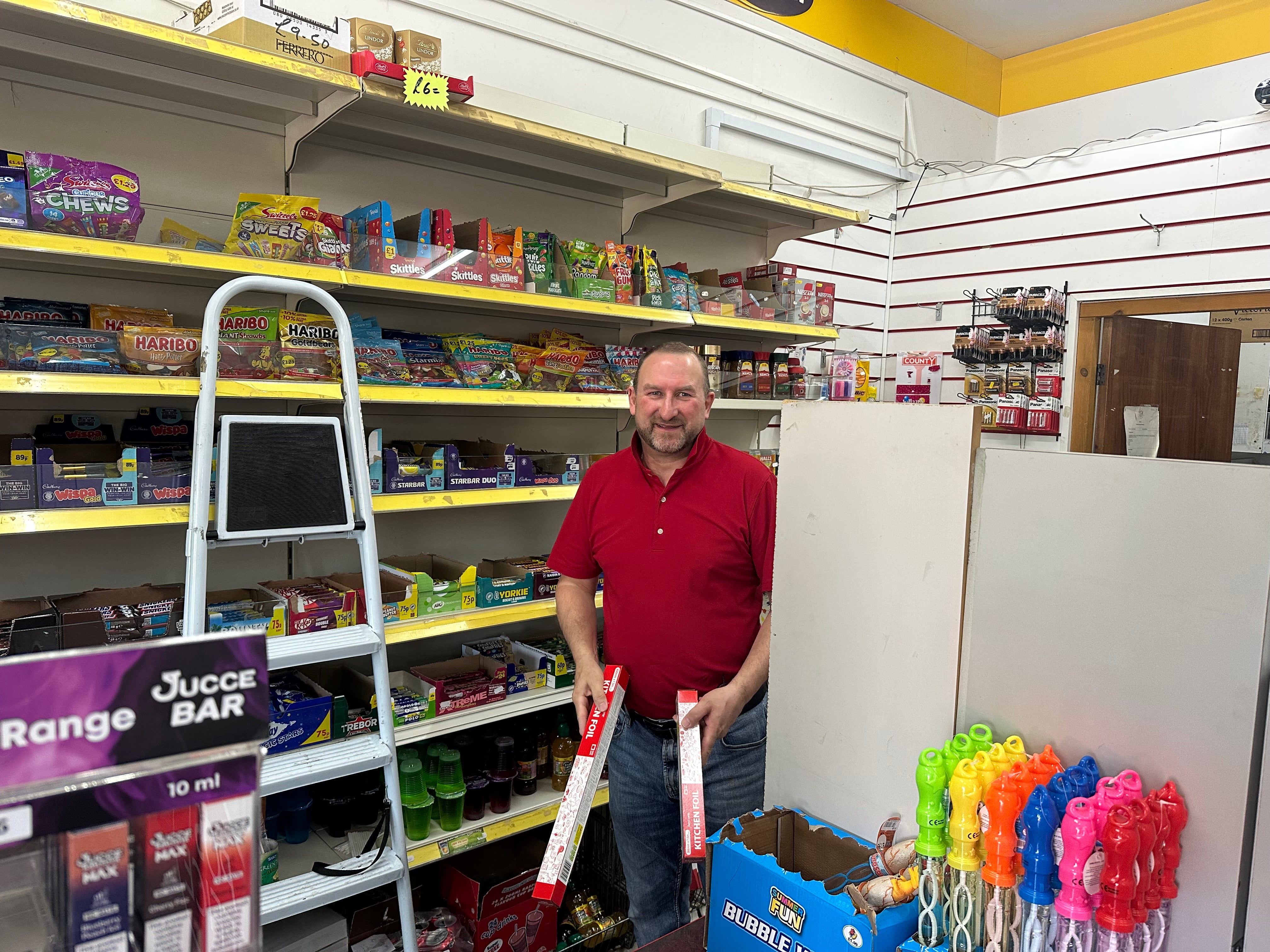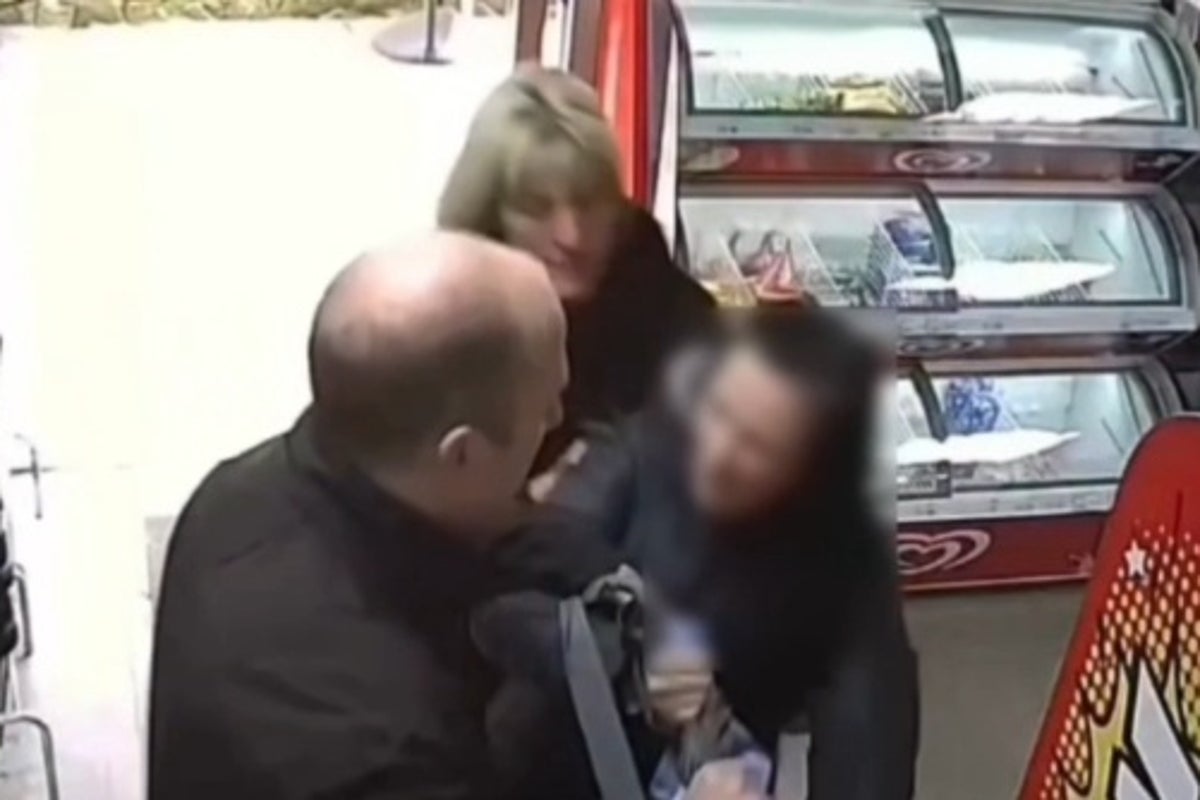Shopkeepers are resorting to desperate measures in a bid to protect their businesses and staff from so-called “kamikaze” thieves who they claim are not being punished hard enough.
With record levels of shoplifting being reported to police, small retailers are having to fork out thousands of pounds on fog machines, enhanced CCTV systems and hi-tech security barriers in a bid to deter would-be thieves.
Some business owners are making citizens arrests, chasing potentially dangerous suspects into surrounding streets, and banning entire schools of pupils.
“High-price” items such as laundry powder, aluminium foil and butter are being kept behind the counter, or even no longer stocked, because of blatant attempts by criminals to clear shop shelves for resale.
Shopkeepers say the rise in so-called kamikaze shoplifting, which takes place in plain sight with complete impunity, is only exacerbated by the lack of tough sentences handed out to those caught.
Just over a quarter of shoplifters sentenced at courts are jailed, Home Office data reveals, with the average custody term being two months. Others caught face softer outcomes.
One woman caught stealing items worth more than £50, including tubs of Lurpak butter, was ordered to pay back 80p “every few weeks out of her benefits” after receiving a conditional discharge, said Andrew Board, a Durham shopkeeper who describes his own fight against shoplifters as “personal”.
.jpeg)
“They’re stealing out of my pocket and I’m not going to have them dragging me into the gutter, I’m not going have these people continue to steal off me and just think they can get away with it,” he told The Independent.
Latest figures show the number of shoplifting offences in England and Wales passed half a million for the first time last year, increasing by 20 per cent from 2023.
The Home Secretary, Yvette Cooper, has promised to crack down on shoplifters, with the latest move announced last week being an increased police presence across 500 towns as part of a safer-streets initiative.
Also, under planned changes to the Crime and Policing Bill, the maximum sentence for shoplifters caught stealing items worth under £200 will rise to seven years, and a new offence will be created for assaulting shop workers.
However, stronger punishment is still needed to tackle the “epidemic”, according to Katy Bourne, lead for retail crime at the Association of Police and Crime Commissioners.
Home Office data analysed by The Independent showed just 18 per cent of reports of shoplifting led to a person being charged or summoned to court, while in 56 per cent of cases, no suspect was identified.
“We know that if we take the prolific offenders off the street crime goes down,” said Ms Bourne, who is the Conservative Police and Crime Commissioner for Sussex. “The message we are sending to thieves is ‘we are almost letting you get away with it’. We need an effective deterrent, we need shops to no longer be an easy target.”
Shoplifting is costing retailers £2.2bn a year, according to the British Retail Consortium, which says many businesses have lost faith in action against the thieves, who, it says, have become bolder and more aggressive.
Andrew Board said he and his staff do not hesitate to catch suspects, adding that those caught rarely come back.
“I’ve reached the stage where I’ve just had enough, so take matters into my own hands now,” he said. “This is just a small family business, so thefts come out of my pocket, so it’s always personal. If the business gets pushed to the point of closing, the community loses access to critical services as we also house a very busy Post Office branch.”
CCTV clips of citizens’ arrests are put on the store’s Facebook page in a further bid to deter other shoplifters.
Mr Board said: “Our overheads have been pushed to extremes. The government promised the construction of many new prisons, so those committing crimes could be more likely to receive just punishments, but it’s all silent.
“If things don’t change quickly, then you’ll find all your small community convenience stores closing down.”
In Bristol, Nick Smith, who runs a Premier shop in Knowle, said he has had to chase after suspected shoplifters fleeing his store. Earlier this year, he ran after a person with a walking stick who was found to have stolen items from the shop.

Tinfoil, coffee and even sweets are now stored behind the counter.
“It may be £4 or £5 worth of items stolen each time, but you add that up over 20 or so incidents and you are down almost £100 – that’s a lot for a small business,” he said.
Also in Bristol, at the Wai Yee Hong Chinese supermarket, a spate of thefts forced bosses to install scanning barriers and ban pupils from a nearby secondary school. Drinks and snacks made famous on TikTok were being targeted, said shop worker Celina Li.
“The extra eyes on shoppers and security were helping to deter shoplifters,” she said. The store received funding to pay for extra security through a Safer Shops West scheme run by the West of England Combined Authority.

Other businesses to benefit include the Silver Shop in Bath. After a break-in, owner Guy Douglas spent £2,000 on a fog machine that can be activated by in-store staff for when a theft occurs. “Fortunately, we haven’t had to use it,” he said. “I like to think the warning signs have had an impact.”
Chief Constable Amanda Blakeman, from the National Police Chiefs’ Council, said: “Over the last two years we have made significant strides in our fight against retail crime, strengthening relationships with retailers and working in partnership to support prevention tactics and improved information sharing.”
The Home Office said local actions plans had been set up with police, shops and councils to crack down on thefts as part of a planned “blitz” this summer. Ms Cooper said “We are putting officers back on the beat where you can see them and making our town centres safe again.”





